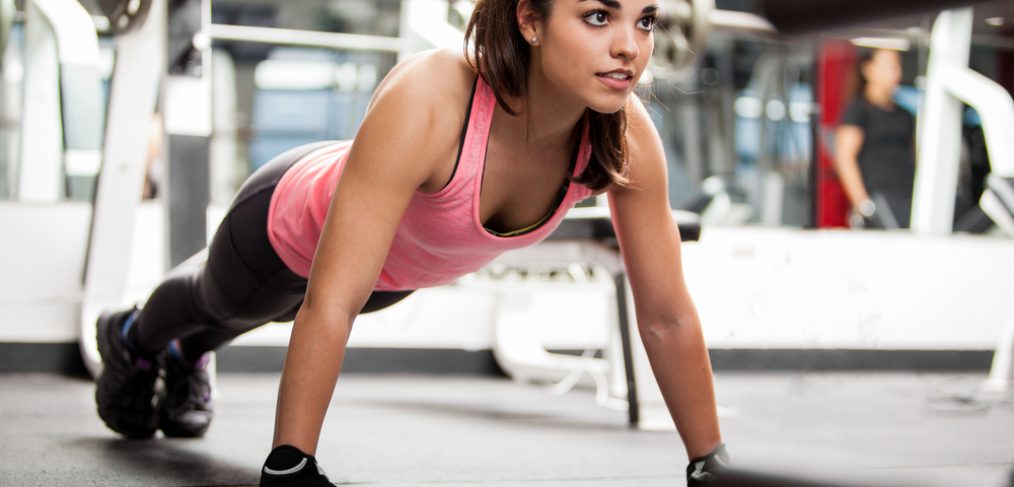So there’s this really cute guy at your gym. You feel emboldened because you just shed about 15 pounds and your new tank top reveals your newly flat belly. You see him on the treadmill. You give a little wave and smile. He waves and smiles back. Good sign. You maintain eye contact as you straddle the stationary bike. You feel his eyes on you as you start to pedal. And then…it happens! You are seized by a blinding shooting pain causing your leg muscles to spasm uncontrollably. Your face becomes a mask of agony. The cute guy looks away, horrified. You will never live this one down.
The most commonly accepted explanation for muscle cramps is dehydration, so most of us will try to combat a cramp with a glass of water. However, the reason for muscle cramps may be far more extensive and avoiding them may not be a simple as grabbing a glass of H2O.
Fluids
The jury on the effects of hydration on muscle cramps is still out. Some studies find there is no correlation between cramps and liquids, others show that fluids and electrolytes can be an effective way to avoid or delay muscle cramps. If dehydration is a cause of cramping, it would work something like this: When we don’t get enough to drink fluids outside our cells decrease and our nerve endings get crowded together, The result of this is a spontaneous discharge or a muscle twitch, leading to a muscle cramp. Proper hydration will prevent this from happening. So, to drink or not to drink? To drink of course. The benefits of staying hydrated during exercise are virtually never-ending, even if they don’t include the prevention of cramps. Experts agree that you let your thirst be your guide in determining the proper amount of fluid to drink and when to drink it.
Muscle Fatigue
Cramps are most common among beginner athletes and those who exercise too intensely because cramps are more likely to result from muscle fatigue. Exercisers should make sure to warm up muscles and pace their exercises to avoid strain. Adapting to heat may also cause cramps. When warmer weather arrives, take precautions to avoid starting workouts with too much intensity; don’t go from 0-100 too quickly.
Salt
Electrolytes are necessary for shifting fluids into and out of cells. Sodium is an electrolyte found in table salt. When it sweats, the body doesn’t just lose water, it loses sodium. Replacing the water without replacing the sodium can lead to dangerously low sodium levels, otherwise known as hyponatremia. This condition is most likely to occur during high endurance workouts which produce repeated sweating and can lead to painful cramping. Sodium can and should be replaced by snacking on salty foods or drinking sports drinks with high sodium levels.
Carbohydrates
Although some may claim they are the devil incarnate, carbs are still the main source of fuel for exercise. Carbohydrates are stored as glycogen in our muscles, and muscle cramps can set in when the store is exhausted. This is because our muscles use carbs to contract and also to relax. While exercise makes muscles contract, without enough fuel, muscle relaxation becomes impaired . If the muscle cannot relax, it can cramp.
Energy from carbs usually lasts through 60 to 90 minutes of exercise. Carbohydrates should be consumed if the workout exceeds that limit. Eat carbs before and during exercise, as needed.
So if you want to avoid those painful cramps, stick to these guidelines:
- Make sure to get appropriate training.
- Get used to the environment.
- Make sure your body gets enough fluids.
- Eat salty foods of high sodium sports drinks during, before and following exercise.
- Consume carbohydrates before working out and every 60 to 90 minutes thereafter.





